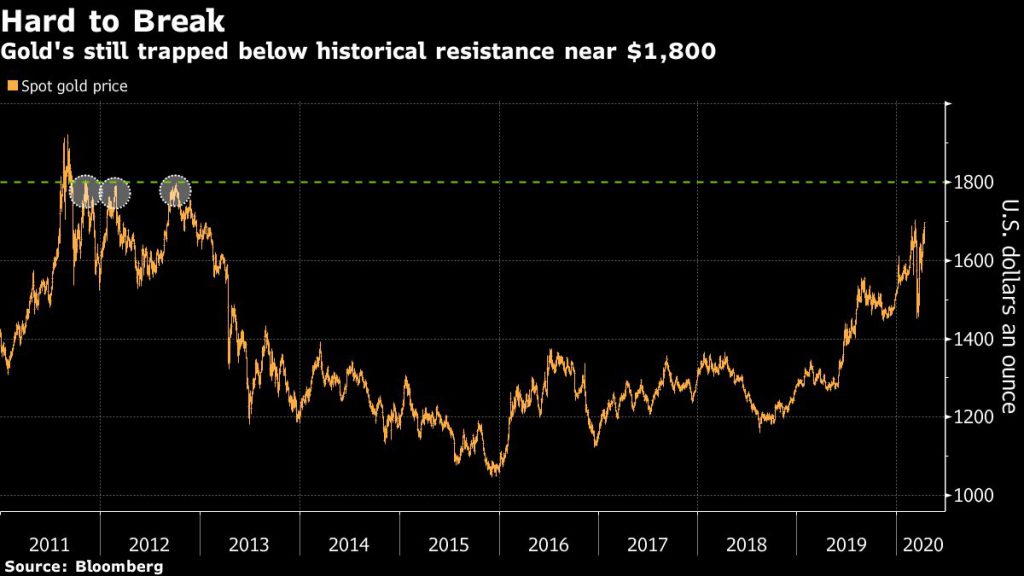Gold declined for the third day in a row on Tuesday, as the prospect of a gradual reopening of economies directed investors’ attention away from safe-haven assets.
Gold futures for June delivery fell 0.1% to $1,721.30 an ounce as of 2:35 p.m. EST on the Comex, after falling to an intraday low of $1,704.10 earlier. Spot gold fell below the $1,700 mark for the first time in almost a week but has since recovered to $1,707.60.
The gold price is still sitting near its highest point in more than seven years amid the current health crisis as investors — aided by cash injections from government stimulus — hedged their money into historically safe assets like the precious metal.

Given that economic uncertainties will likely persist, investors will be closely monitoring the financial decision maker’s next moves. Both the Federal Reserve and the European Central Bank are expected to make policy announcements this week, which could entail further measures to keep money flowing in their respective economies.
“THE GOLD MARKET IS IN A WAIT-AND-SEE MODE AHEAD OF THE CENTRAL BANK MEETINGS”
Ole Hansen, head of commodity strategy, Saxo Bank A/S
“The gold market is in a wait-and-see mode ahead of the central bank meetings,” said Ole Hansen, head of commodity strategy at Saxo Bank A/S. “While a weakening dollar is providing some support today, investors are waiting for fresh drivers and, most importantly, a breakout.”
Investors will also pay close attention to the potential economic fallout of the government’s responses to the coronavirus pandemic. Many are concerned that the unprecedented monetary policies seen around the world could be a ticking time bomb leading to a deep recession with high interest and inflation rates.
“The trillions of dollars being spent to save our virus-battered economy are stoking fears of inflation,” Steve Forbes, chairman and editor-in-chief of Forbes Media, said in a podcast last Friday. Related: How Coronavirus Has Created A New Normal In Our Daily Lives
Forbes also said that regardless of the economic scenario, gold will retain its status as a hedge asset and is a must-own in every investor’s portfolio, given how well it has performed historically during economic downturns.
David Kelly, chief global strategist of JPMorgan’s asset management unit, wrote in a note on Monday that investors would be “well-advised to structure their portfolios with an eye to the possibility” that an inflation bomb may go off in the aftermath of the coronavirus recession.
Kelly added that real assets such as real estate and precious metals “can serve an important, although long-redundant role, in protecting a portfolio against the risk of inflation.”
By Mining.com
More Top Reads From Safehaven.com:
















